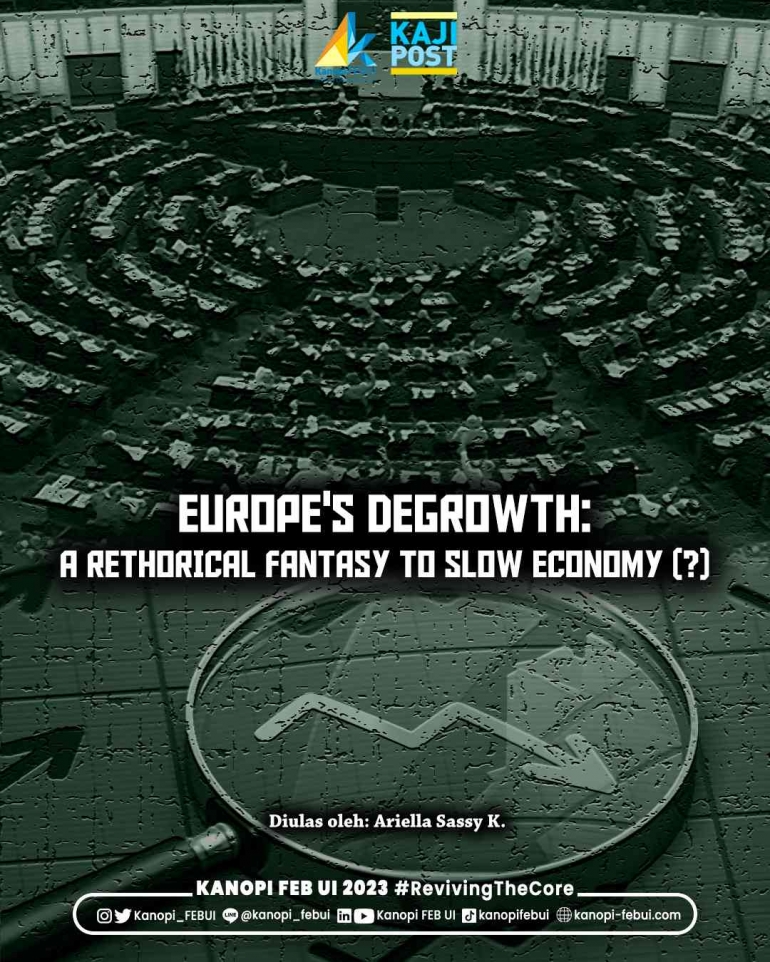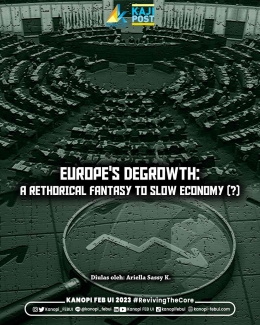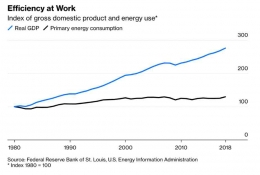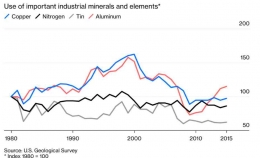With all being said, most economists do not consider the said suggestion, as there can be said that a sustainable economy can grow because technical progress continues-- as what has been said by Sir Dieter Helm, professor of economic policy at the University of Oxford in his lectures. One of which is the efficiency of how we use energy is independent of the growth of GDP. One example can be seen in the U.S., where the gross domestic product (GDP) has continued to rise, even though energy use has stayed constant:
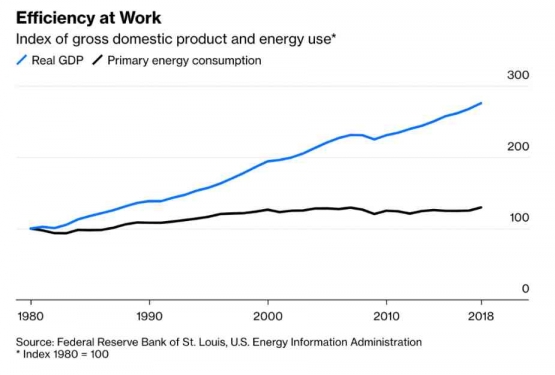
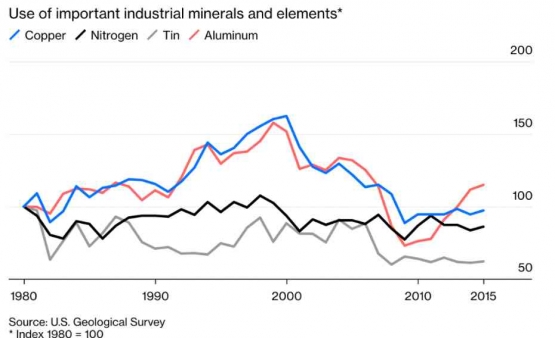
The statement on how economic growth requires intensive resource usage and huge emissions is, by far, an old belief in the early days of industrialization. Economic growth is supported by both extensive and intensive factors. We can see that when an economy expands extensively, it can grow in a straightforward way. However, intensive growth is different because it involves finding ways to improve productivity and efficiency through technological progress. Intensive growth means doing more with less, and it usually requires investing more money in things like new processes, and equipment, and improving product quality. It depends on a particular period when either extensive or intensive sources predominate. In the European Socialist countries up to about the mid-1960s, the extensive component of economic growth was not only dominant but in fact on the whole relatively increasing. The economic reforms, particularly those since the early 1960s, have mostly been designed to command these economies toward more intensive growth.
In recent years Europe, particularly, the concerns also came from Russia's war in Ukraine, and the energy crisis that its weaponization of gas supplies produced. In less than a year, large EU countries had reduced their natural gas consumption by more than 20 percent compared with the five-year average, without a corresponding increase in oil and coal use. Their overall industrial production, nevertheless, held up strongly.
If there's anything to be discovered at this conference by the EU parliament, it's how they're trying to solve it first. In the research literature done by Fitzpatrick in 2022 regarding degrowth policies proposal, it has been found that most proposals focus more on what a policy is supposed to achieve (objectives) rather than giving instruments in how a supposed policy can achieve it, often ignoring a diversity of transitional changes. The paper also found that most of these policies are studied in isolation, with few integrations between the elements within the degrowth agenda. And finally, the EU parliament held the conference as global resource use is currently on an unsustainable route, and with growing climate change concerns, it is an open quest for everybody to solve together.
Diulas oleh: Ariella Sassy Kirana | Ilmu Ekonomi 2021| Manager Divisi Kajian Kanopi FEB UI 2023/2024
References
Kallis, Giorgos & Demaria, Federico & D'Alisa, Giacomo. (2015). Introduction to "Degrowth: A Vocabulary for a New Era" (2015) PDF. Degrowth: A Vocabulary for a New Era. 1-17.
Jensen, Liselotte, et al. "Beyond Growth, Pathways towards Sustainable Prosperity in the EU." Https://Www.Europarl.Europa.Eu/Portal/En, European Parliamentary Research Service, 2023, https://www.europarl.europa.eu/RegData/etudes/STUD/2023/747108/EPRS_STU(2023)747108_EN.pdf.
Fitzpatrick, Nick, et al. "Exploring Degrowth Policy Proposals: A Systematic Mapping with Thematic Synthesis." Journal of Cleaner Production, Elsevier BV, Sept. 2022, p. 132764. Crossref, doi:10.1016/j.jclepro.2022.132764.





